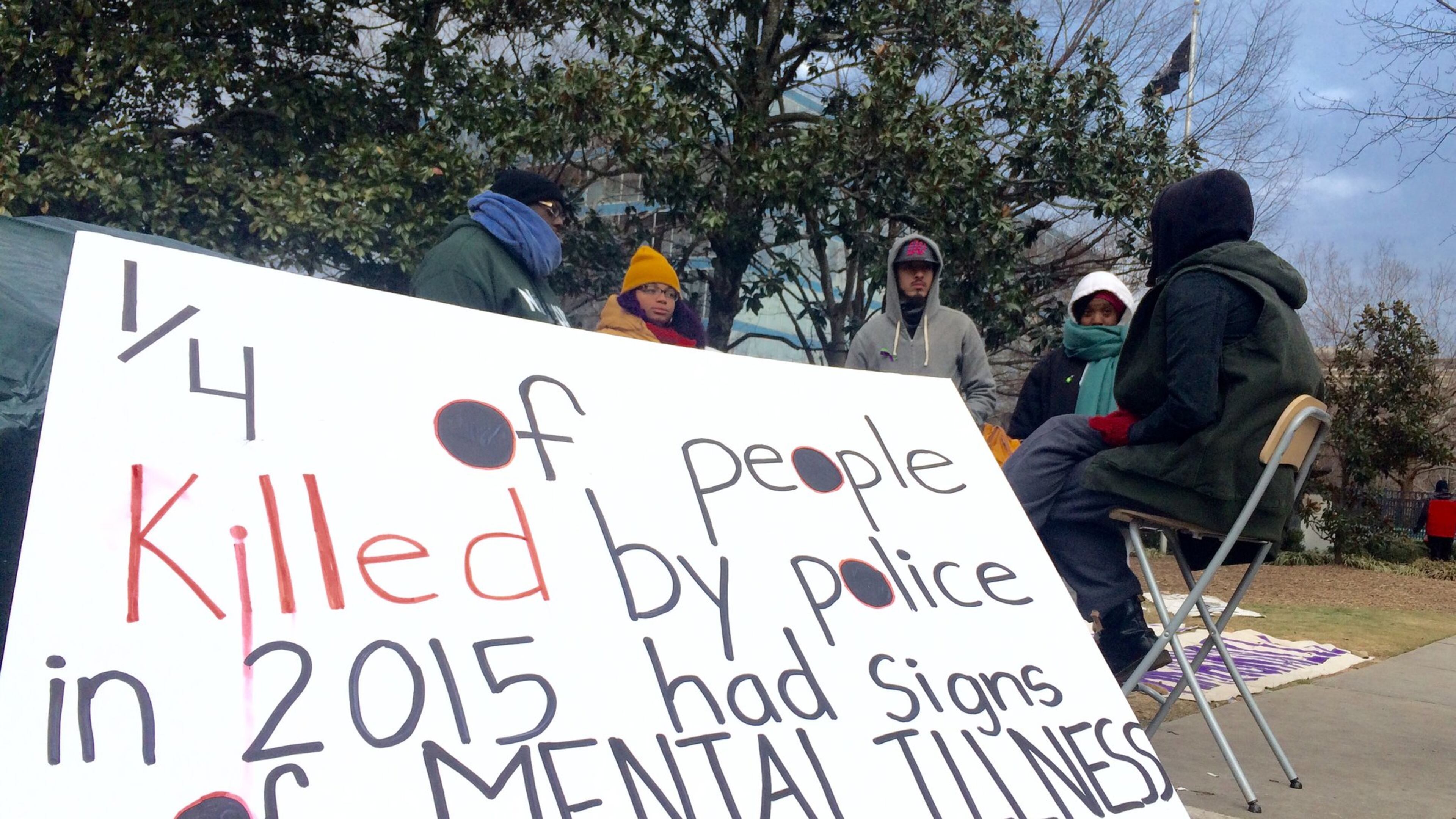Opinion: Teaching about disabilities, biases can save lives

Last week, the trial ended for Robert Olson, the ex-cop who shot and killed Anthony Hill. Hill was a veteran who, in 2015 was having a mental health crisis. Concerned, but not afraid, neighbors called the police after seeing him wander the apartment complex naked at mid-day. Olson claimed Hill charged at him. Hill was naked, unarmed, and black. The jury found Olson guilty of aggravated assault, making a false statement, and two counts of violation of oath. They acquitted him of murder.
As Olson’s trial was beginning, Los Angeles prosecutors failed to bring charges against police officer Salvador Sanchez in the killing of Kenneth French, who he shot in a Costco while off-duty. French was also a man of color and had a mental disability. And on October 12, an officer in Fort Worth killed Atatiana K. Jefferson in her home after a neighbor called police for a wellness check, as they had done for Anthony Hill.
Across America, we have a dangerous, even fatal, fear of people with intellectual and psychiatric disabilities. And we are ambivalent, if not apathetic, when they are harmed by the criminal justice system.
The Ruderman Family Foundation recently found that “[d]isabled individuals make up a third to half of all people killed by law enforcement officers.” This urgent problem deserves more attention by the public, policymakers, and law enforcement.
In the past century, we have segregated, sterilized, and failed to protect the lives of people with these disabilities. The general public has little experience interacting with people with intellectual and psychiatric disabilities. Most of what is known about people with these disabilities is learned through the media, where they are portrayed as unpredictable and incurably dangerous despite the fact that they are much more likely to be victims — not perpetrators – of crime.
At the same time, we have militarized police, targeted poor communities and communities of color, and navigated away from training police in de-escalation tactics. All of these factors put people with intellectual and psychiatric disabilities at an extraordinary high risk for violence when interacting with police. And this risk is even worse for our other most feared identity — young men of color.
Once incarcerated, people with these disabilities not only serve longer, harder sentences — often being bullied, victimized, and put in solitary or having time added onto their sentence when difficulties following or processing directions gets interpreted as obstinance — but are also at a high risk for being wrongly executed.
In 2011, disability activist Robert Perske published a compilation of people with intellectual and developmental disabilities who had falsely confessed to felonies. At the time of Perske’s death, the list had 75 names on it. Of those, six — Jeremy Bowden, Walter Cornell, Girvies Davis, Barry Lee Fairchild, Cornelius Singleton and Joe Arridy — had already been executed.
In 2002, the Supreme Court ruled that it is unconstitutional to execute people with intellectual disabilities. However, for several years after this ruling, states only had to use an IQ score to determine disability, which are known to be highly variable and can be biased against class and race. To address this issue, in 2014, the court ruled in Hall v Florida that states must use something along with IQ scores, and in 2017 in Moore v Texas ruled that the best psychiatric and medical information must be considered in diverting people away from the death penalty. But still, the majority of people on death row are disabled.
And these rulings do nothing to help the high incidence of first responder-related violence for people with these disabilities.
For the past year, as a disability, ethics and justice scholar, I’ve interviewed people with disabilities, like autism, Down syndrome, fetal alcohol syndrome, and ADHD, about interactions they’ve had with police, judges, lawyers, prisons, and jails. I asked them what they want police to know, do, and not do. Their answers need to be taken seriously – they could save lives.
Many spoke about the need for officers to speak more slowly, at lower volumes, and to give them time to think about their response. Some told me officers, judges, and lawyers should ask everyone they encounter if they have a disability.
But most importantly, those I interviewed said they just wanted to be treated with respect. This is key: You cannot treat someone with respect and dignity and still act violently towards them. Violence thrives on contempt.
These suggestions are not disability-specific. They are universally helpful for anyone interacting with our criminal justice system. And they can help us rethink the entire system and save lives, like Anthony Hill’s, Kenneth French’s, and Atatiana K. Jefferson’s.
The word ‘justice’ means fairness. Yet what my informants have told me, what the research shows, and what these cases of police violence and disability demonstrate, is that the system is not fair. When the system is more difficult for certain people — like those with disabilities, poor education, or few resources — can we really call it a criminal justice system?
By reconsidering our system — from police interaction to incarceration — we may start to find some real solutions to put the justice back into our criminal justice system. We may even find that we need to restart and build a justice system from the ground up. One that attends to and corrects for the inequities scholars, advocates, and those impacted are revealing.
Jennifer C. Sarrett, Ph.D, is a disability, ethics and justice scholar and lecturer at Emory University’s Center for the Study of Human Health.
More Stories
The Latest


